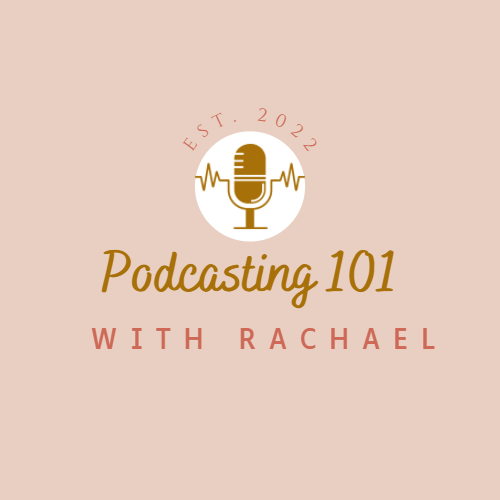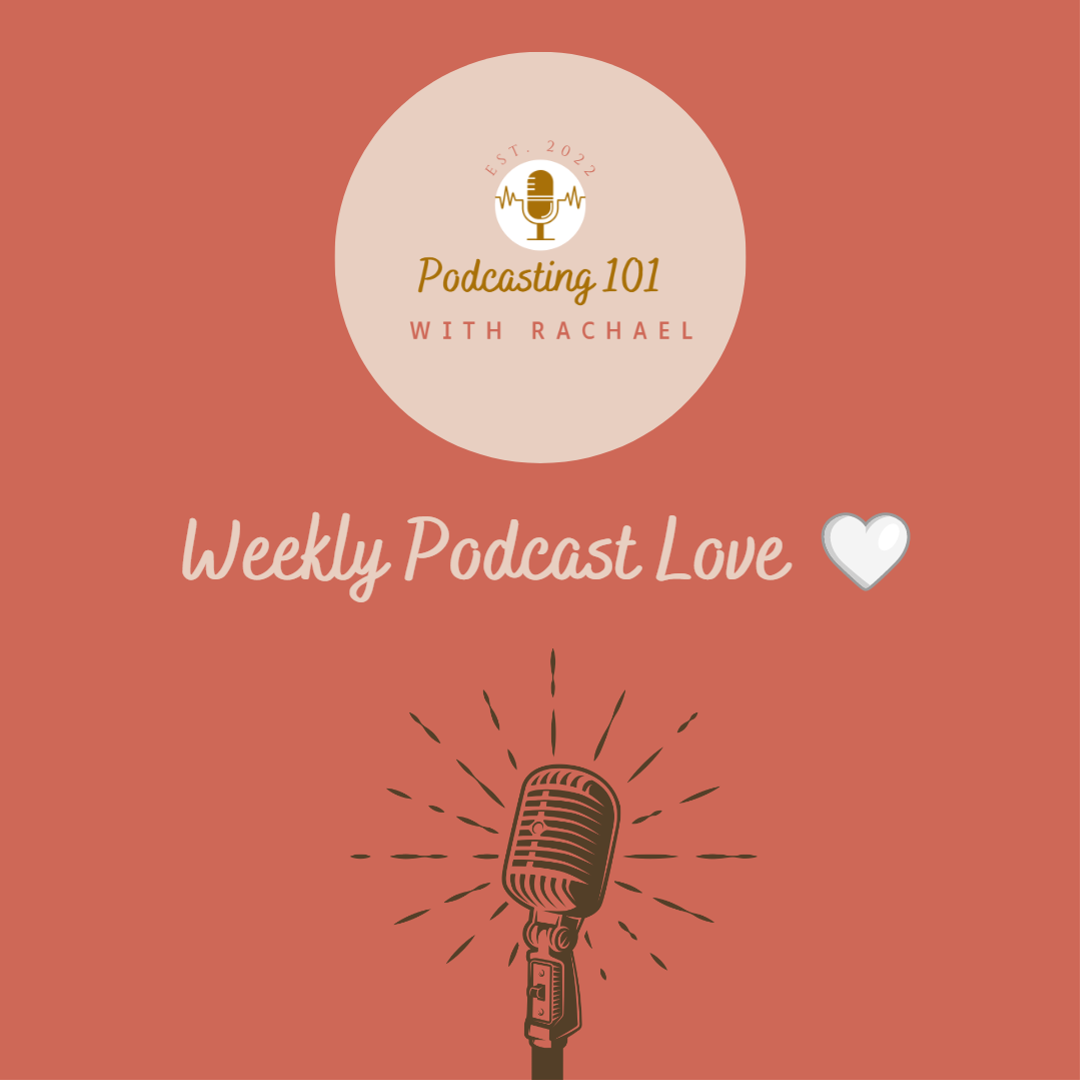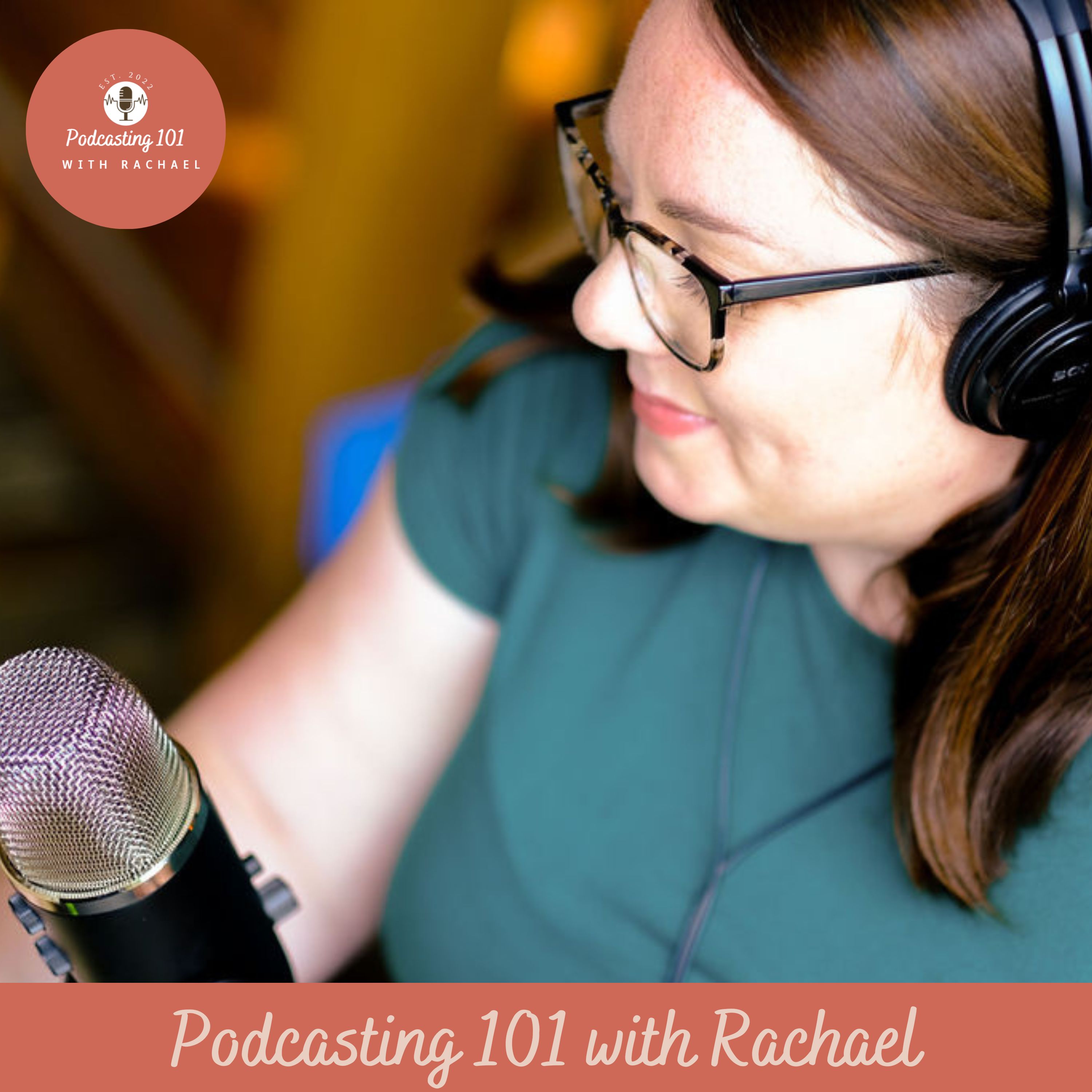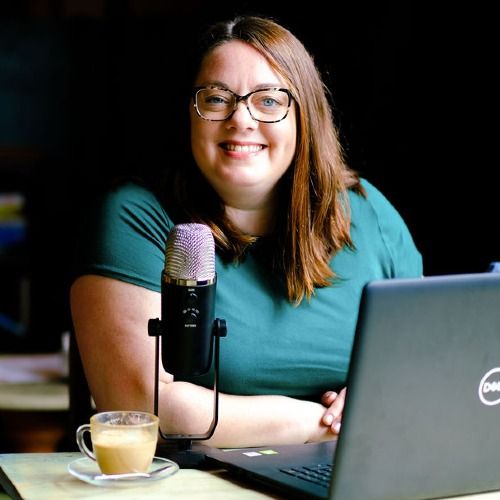Batching Your Podcast Episodes
This week I'm talking about batching.
For those who don't know what batching is, it's when you create several pieces of content at once to save you time.
In this episode, I'm going to share my process for batching this podcast to give you an idea of what you'll need to do.
Remember to do what works for you and your schedule.
Please share your batching tips with me!
If you have any questions or would like some help with your podcast, book a podcast enquiry call.
Can I ask a favour?
If you enjoyed the episode, I'd love it if you could leave me a review.
You can leave one here
Thanks so much!
I'd love to connect with you on social!
You can find me on:
Want to start a podcast, but not sure where to start? Download my free Podcast Playbook Get clear on your ideas!
Need some extra support? Book a 90-minute Podcast Strategy Session
Struggling with your podcast promotion? Grab my Easy-Peasy Podcast Promotion Checklist here!
Transcript
Welcome to podcasting one on one with me your host
Unknown:Rachel. This podcast is for female business owners and
Unknown:solopreneurs that are looking to start a podcast that add to your
Unknown:own already awesome offering. I'll give you helpful advice
Unknown:that you can take away and use in your podcasting journey. I
Unknown:hope to answer those tricky questions that just keep you
Unknown:from starting. Once a month, I'll be joined by other female
Unknown:podcasters. They'll share their journey with you and offer tips
Unknown:and advice they discovered along the way. Let's get started.
Unknown:Hi, and welcome to this week's episode. This week, I'm talking
Unknown:about batching. For those of you who don't know what batching is,
Unknown:is when you create several pieces of content at once to
Unknown:save you time. I batch my podcast and my social media
Unknown:marketing every four weeks, when my guests are concerned, I tried
Unknown:to get them recorded as soon as possible to give me extra time
Unknown:to edit them. So I've already planned out what the episodes
Unknown:will be about. But I wait to the full weekly slot to fine tune
Unknown:the episode content. So I did this at the beginning of my
Unknown:podcast journey, I decided I was going to commit to 12 months,
Unknown:and I outlined 12 months worth of weekly episodes. So whatever
Unknown:it is for you, maybe it's a season, maybe it's six months,
Unknown:however that looks for you. That's, you know, you, you do
Unknown:you.
Unknown:Let me share my process with you. And you can take from this
Unknown:whatever you need. And this is just so I can show a working
Unknown:example of what it's like to do batching. So when I first
Unknown:started, I planned out 12 months of weekly episodes, I had the
Unknown:titles in mind for each episode and started doing guest
Unknown:research. Now we'll talk a little bit more about guest
Unknown:research in a future episode coming up in the next few weeks.
Unknown:Once I had my episodes laid out, I broke them down into four week
Unknown:chunks, so I knew which episodes I needed to concentrate on. And
Unknown:one of those episodes would have been will be a guest episode, I
Unknown:use the episode planning feature in Captivate to plan my
Unknown:episodes, which I absolutely love. It's really simple, you
Unknown:can put a description in there and write all your notes that
Unknown:you want to follow. Like, for example, now I'm following the
Unknown:notes that I've made in the app as a planner. It also makes
Unknown:adding details for guests and show notes super simple. I also
Unknown:have an episode coming up this month, talking about the tools
Unknown:that are used, and obviously Captivate is one of them. So
Unknown:I'll go into a little bit more detail about that. And the
Unknown:features to make things easier on a future episode. So But just
Unknown:for now, that's where I plan yours, I used to plan it in a
Unknown:Word document where I had a table for the episodes, you
Unknown:could also use a project management tool, so it's just
Unknown:whatever works for you. So then I work on the episode content
Unknown:and I write up notes to guide me when I'm talking. I record my
Unknown:episode straight into Audacity. As I'm doing now, I love the
Unknown:simplicity of Audacity, and I find it easier to record
Unknown:straight into the platform and then I can easily edit and
Unknown:polish the episode so and then I also pull quotes and clips from
Unknown:the episode I do this kind of like all in one go. So I'll
Unknown:record an episode, edit Polish pull quotes and clips. And then
Unknown:I will do the next few episodes in that order so that when I
Unknown:move on to the next episode, I've got a finished one already.
Unknown:Then I will edit the guest episode and pull quotes and
Unknown:clips from that as well. So then all four episodes are done. I
Unknown:then do the uploading, I upload them all to captivate, I add the
Unknown:show notes, I add a transcript and then I schedule them for
Unknown:publishing. When I have all of this content scheduled and done,
Unknown:I move on to the planning the social media posts to go with
Unknown:the podcast. So I create audio grammes in headliner of each of
Unknown:the episodes. I commit to three posts a week going out cross
Unknown:platform, and by cross platform, I mean LinkedIn, Facebook, and
Unknown:Instagram. One post is the day the episode airs, which is the
Unknown:audio Graham post and I try and write something that links to
Unknown:the clip that I've chosen and talking about, and you know,
Unknown:just let everybody know what the episodes about. But the other
Unknown:two I like to create one posts around the subject that I'm
Unknown:talking about. And also over the four week timeframe, it's a good
Unknown:idea to repurpose them content from previous episodes, it's so
Unknown:easy to forget this, I haven't really been doing this myself up
Unknown:until recently. So what I've decided to do, while at the time
Unknown:of this recording, it's November by the end of October 2022. So
Unknown:I'm going to dedicate one post a week to repurposing some of my
Unknown:previous content that's still relevant for my audience. You
Unknown:know, you might have new followers that haven't had
Unknown:chance to see this content yet. And we all know that kind of
Unknown:statistic where I think something real like 4% of people
Unknown:of your audience see your content at any one time. So and
Unknown:if it's still relevant, you can tweak them, you don't have to
Unknown:just put them out as they were. But depending on the kind of
Unknown:engagement that you got on those posts, maybe you could tweak it
Unknown:to kind of increase engagement, if it wasn't that great before.
Unknown:These are just little things that you can think about. I
Unknown:generally scheduled all my content to go out through buffer
Unknown:and meta business suite, these tools are free, I use both on
Unknown:the free version. An interesting thing I heard recently about
Unknown:LinkedIn, is that the algorithm Gods prioritising native posts,
Unknown:rather than third party sharing, which is through scheduler, so
Unknown:the posts wouldn't do as well, if they came from a scheduler,
Unknown:then if you post them natively. Now, I don't know how,
Unknown:how true this really is, whether it's depending on the type of
Unknown:ordinance that you've gotten all those kinds of things, because I
Unknown:know lots of people love to second guess what the algorithm
Unknown:does, but you know, it'll do what it wants, or it's just too
Unknown:complicated to kind of work out. But what I am going to do is I'm
Unknown:going to test this out over the next four weeks. So this episode
Unknown:comes out at the beginning of November. So for my for weekly
Unknown:episodes, I'm going to post natively as opposed to
Unknown:scheduling them. And I'm going to monitor the engagement that I
Unknown:get and compare it to other months. It's good to experiment.
Unknown:I'm not sure if you've listened to the Janet Marie episode, she
Unknown:hosts the courageous content podcast. And she really knows
Unknown:her stuff when it comes to posting on social media. And
Unknown:it's just interesting, we were talking about testing. It's not
Unknown:something I've done a lot of but here I'm just interested to see
Unknown:what the engagement would be, or if there was a difference to it.
Unknown:So I will let you know what I find in a future episode. Well,
Unknown:next month in December. Okay, let's get back to it. So if your
Unknown:podcast has guests, then I found getting them booked in well in
Unknown:advance wherever possible, which allows you to time to get the
Unknown:rest of the things done. Because obviously, once you've recorded
Unknown:you need to edit, you need to create all the social media
Unknown:around it and all of those things. So I found it's, it's
Unknown:good to have them in the bank, if you will. It just allows you
Unknown:that time to get your next guests and that leeway time.
Unknown:Obviously, if your show is every week with guests, you're going
Unknown:to have to be really hot on getting these interviews,
Unknown:scheduled and sorted and things like that. If you get the guests
Unknown:on in advance of the episodes being released, it also gives
Unknown:you the opportunity to create the social media assets to send
Unknown:to your guests. This will make it as easy as possible for them
Unknown:to promote the episode, and obviously increasing the reach
Unknown:to their audience as well. So that's something to think about.
Unknown:I hope that this episode has helped give you an idea of how
Unknown:to shape your batching as I said before, remember to do what
Unknown:works for you and your schedule. This for weekly batching works
Unknown:really well for me, that's how I like to do it. But you need to
Unknown:take the idea of batching and run with and do what works for
Unknown:you and your schedule. There's no point trying to crazy boss
Unknown:someone else's schedule until your work life. If you have any
Unknown:questions around this episode, or I would also really love to
Unknown:hear your batching tips and advice as well. Always good to
Unknown:take new things on board. And thanks for listening, and I'll
Unknown:see you next time. Bye. Thanks so much for listening. If you've
Unknown:enjoyed today's episode, please like share and subscribe. Your
Unknown:support means so much to me. If there's a question or topic
Unknown:you'd like covering then I'd love to hear from you. Find the
Unknown:podcast on Instagram at Rachel Botfield and drop me a DM till
Unknown:next time bye



